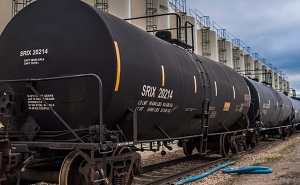Canada's Alberta Extends Oil Curtailments Through 2020 Due to Slow Pipeline Progress
(Reuters) — The government of Canada’s main oil-producing province, Alberta, said on Tuesday it was extending mandatory curtailments on crude production by an extra year through 2020, because of uncertainty about when expanded pipelines may come online.
Alberta’s previous New Democratic Party government imposed production limits in January to drain a glut of oil in storage that built up due to congested pipelines. The curtailments have dramatically reduced a painful discount on Canadian heavy crude, but investor confidence remains shaken and energy stocks are trading around historic lows. Conversely, Canada's midstream sector has remained a strong investment target this year.
Premier Jason Kenney’s United Conservative Party government, which took office in the spring, has steadily eased curtailments as inventories drained.
But Alberta Energy Minister Sonya Savage said that with delays in pipeline approvals such as Enbridge Inc’s Line 3 replacement, production levels could exceed rail and pipeline capacity by 150,000 barrels per day, and greater price discounts could reappear, unless the province extended curtailments.
“We’re doing this because we have to. In the short term, we don’t have the capacity to move the production,” Savage told reporters in Calgary.
The government also said it would raise the exemption in the curtailment formula for all oil producers to 20,000 barrels per day (bpd) from 10,000 bpd, effective in October. The move means that curtailment will apply to only 16 of Alberta’s 300 oil producers, down from 29 companies currently.
In October, oil production will rise slightly to 3.79 million bpd from 3.76 million in September, Savage said.
Savage said it was possible that curtailment might end earlier, depending on market conditions, but that extending it for now gave the province greater flexibility.
Pipeline projects have run into fierce opposition in Canada and the United States, causing regulatory and court delays lasting years. Activists oppose pipelines as a way of strangling expansion of the Canadian oil sands, which they say are especially harmful to the environment.
Alberta’s biggest producers, including Canadian Natural Resources Ltd and Suncor Energy Inc urged the provincial government in July to allow expanded production as greater rail capacity to ship it became available.
Savage said she had not ruled out the idea but was not ready to make a decision.
She said she intended to announce monthly revisions to curtailment levels 60 days in advance, instead of 30 days previously, to help producers plan.
Alberta is not changing the overall methodology that it uses to determine each company’s production limit.
Related News
Related News

- Enbridge Plans 86-Mile Pipeline Expansion, Bringing 850 Workers to Northern B.C.
- Intensity, Rainbow Energy to Build 344-Mile Gas Pipeline Across North Dakota
- Energy Transfer to Build $5.3 Billion Permian Gas Pipeline to Supply Southwest
- Enbridge Sees High Demand to Expand 593-Mile Canada-to-U.S. Gulf Oil Pipeline
- Strike Pioneers First-of-Its-Kind Pipe-in-Pipe Installation on Gulf Coast with Enbridge
- A Systematic Approach To Ensuring Pipeline Integrity
- 275-Mile Texas-to-Oklahoma Gas Pipeline Enters Open Season
- LNG Canada Start-Up Fails to Lift Gas Prices Amid Supply Glut
- Strike Pioneers First-of-Its-Kind Pipe-in-Pipe Installation on Gulf Coast with Enbridge
- Enbridge Sees High Demand to Expand 593-Mile Canada-to-U.S. Gulf Oil Pipeline





Comments